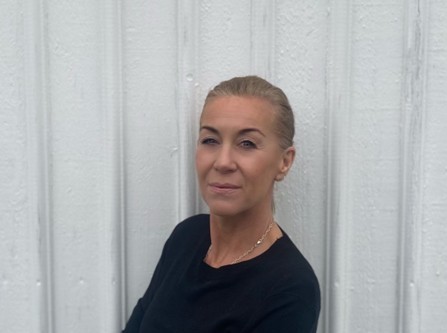This week's inspiration - Kalle Mobeck
This week's inspiration is Kalle Mobeck, who has had a long and successful career in the start-up industry with a focus on marketing, SaaS and new technology. We had a chat with Kalle to talk about AI


Kalle, there's a lot of talk about AI these days, but when and how do you think we'll see the really big new applications of this technology?
That's a big and complex question. Over the past 6 months, I've met with leading figures from many different professional groups to better understand the situation. We now know that, in hindsight, digitalization has taken a long time for many companies, even though the tools have been available. It's the actual implementation and the adjustment for us humans that takes time.
The big difference between digital development and AI development is that the functionality within AI has developed so incredibly quickly.
For a current example in an industry where change through AI has already had a huge impact, look at the customer service industry. IT/media, banking/finance, and law are the next major industries to be changed by AI.
Why is it relevant to understand the impact AI has on us?
If the industrial revolution hit farmers hard, and then the 'IT revolution' hit the industry hard, this time it's the service sector where we will see the biggest changes in the next 5-10 years.
Kalle, that sounds like a dystopian view of the future. If we turn the coin, what positive things do you see?
Productivity will increase like never before in most verticals within the service sector. Many administrative tasks will be able to be performed by fewer employees using AI tools. This will give us more time for demanding tasks where creativity and strategic thinking become crucial.
The second big win will be accessibility. Today, for example, it is extremely difficult and rare to be able to make a good commercial film, as it requires very many detailed components. Almost everything in creative production will be easily accessible to everyone, which means that what was previously only possible to produce for larger companies with large budgets can now also be achieved for anyone with less money.
The third big win is that it will create a new segment of services in everything from "Creative Engineers", AI Product Managers, AI Ethics Specialists. The list can be long, but with the new tools, there will also be new opportunities and new services that almost all companies will need. (Already today it is possible to test code, make video clips, create advanced images, compile reports or write copy text with AI tools).
History also tends to repeat itself, and if we look at previous "revolutions", productivity has always increased and jobs have "dipped" temporarily, only to then be at the same level as before. Everyone has probably worried at all times that change at this level will lead to something worse, but if we look historically, it has always gotten better.
Kalle, you who have one foot in the old and one in "the new digital", how do you think our way of meeting and collaborating will develop in the future?
The physical meeting will be valued even more when we soon live in a world where it is no longer possible to determine what is real on the internet. To ensure this, the physical meeting will be valued even more, and something that we humans are increasingly looking for is belonging. Belonging in the form of building "community" and meetings where we can meet other people physically will become even more important in the future.
Any tips for our followers?
If I can give three general tips on the theme of the future and building companies, my three tips are:
Be curious - the world has always changed and it will change again now, so be curious so you can be part of the change.
Implement, don't philosophize - Focus on making small changes that allow you to get started instead of getting stuck in big plans from strategy days/kickoffs that are never implemented.
Communicate more -In times of change and in tough financial times, there is nothing more important than being clear in your communication as a leader. Take responsibility, be clear about expectations, follow up with results and dare to talk about the changes that are taking place.
Contact
What challenges are you facing today? - We would love to hear from you!





